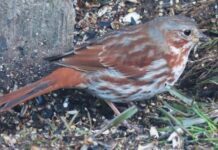The Ontario Legislature has passed the Scottish Heritage Day Act, proclaiming November 30 as Scottish Heritage Day in Ontario. The date is significant, as it is St. Andrew’s Day, Scotland’s National Holiday. The Act was introduced in the Legislature by Jim McDonell, the MPP for Stormont – Dundas – South Glengarry last September, and passed through without opposition. It became law on June 3.
It was particularly appropriate that the local MPP promoted the new Act, as his riding remains identified with Scottish Highland immigration, both after the American Revolution, and following the Highland Clearances, when a great number of people were evicted from their homes and lands after 1760, with a large influx to Glengarry County in 1786. The lands in the Scottish Highlands were “cleared” of tenant farmers to make room for sheep farming.
There were later additions to the Scottish population when discharged soldiers and immigrants from Scotland formed part of a government-funded scheme of settlement after the War of 1812, leading to the establishment of the Town of Perth, which became a military supply depot for the Rideau Canal region.
The experience of the Scottish Loyalists forced to flee after the American War, and the same sense of exile experienced by those who came after the Clearances, gave the population of the region a strong sense of Scottish identity that has been maintained to the present day. Scots Gaelic is still a living language in the area, though fast disappearing. But other elements of Scottish culture remain vibrant and popular. The Glengarry Highland Games provide a venue where many Scottish competitions are held to celebrate Scottish Culture.
Scotland has provided a large number of individuals who have made an enormous contribution to Ontario and Canada. After the departure of the French Regime in 1763, leaders of the new British administration, like General James Murray, smoothed the way for the more positive relations which developed between the old French settlers and the new rulers. Murray was born Ballencrieff, East Lothian. Scots made up a high percentage of the Fathers of Confederation, including George Brown, publisher of the Toronto Globe newspaper, first leader of the Liberal Party, and an essential participant in the making of Canada in 1867. He was born in Alloa, Clackmannanshire, Scotland. The first two Prime Ministers of Canada were born in Scotland. John Alexander Macdonald was born in Glasgow, and Alexander Mackenzie was born in Logierait, Perthshire.
Not all Scots were as positive in their contribution to the political life of their new country. William Lyon Mackenzie was born on March 12, 1795, in Dundee, and became an important newspaper publisher in Upper Canada in the 1830’s. His “firebrand” personality led to him leading a rebellion against British rule in 1837. However, after spending some years in exile in the United States, he returned to Canada and even took his seat in the Legislature during the last years of his life.
Scotland gave Canada many entrepreneurs and scientists over the generations, both Scottish-born, like John Redpath, who was born at Earlston, Berwickshire, and the descendants of Scottish immigrants. Redpath built the Lachine Canal, opening the Saint Lawrence to larger shipping potential, as well as building some of the locks on the Rideau Canal, founded the Redpath Sugar Company, and many other commercial operations.
Even the health system enjoyed by Canadians today is the result of the work of another, later, Scottish immigrant. Tommy Douglas was born in Falkirk, Scotland, in 1904. His introduction of Medicare in Saskatchewan led in turn to systems like OHIP in Ontario. He later served as the first leader of the federal New Democratic Party.
There’s a long list of contributions made to this country by Scots, proud of their ancestry and of their country. And there is a lot to celebrate on November 30 with the first Scottish Heritage Day in Ontario.





